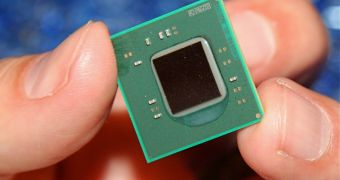It appears that a certain entity on the market has more than a passing influence on the roadmap of the world's greatest maker of central processing units, even though its PC share is rather small.
One thing about Intel is that it is going through a sort of transition period, at least partially, now that tablets and the mobile market as a whole are gaining profile.
In fact, not long ago, the Santa Clara, California-based company revealed that it was going to bet heavily on the Medfield smartphone chip it has in store, as well as redefine the concept of PC itself.
Now, it is reported that Apple has a significant bearing on the roadmaps chosen by the chip developer, even though its stake in the PC market is fairly small.
In 2010, Apple held about 5% of the total segment (its Machintosh systems), quite a few miles away from what HP, Dell, Acer or Lenovo had to brag about.
Meanwhile, Intel holds an 80% stake in the overall microprocessor market for servers, desktops and, of course, laptops, although AMD has been gaining headway in the latter area ever since the Fusion APUs debuted.
Also, with Apple's proprietary OS and non-standard technical solutions, Intel's decision to establish a roadmap in accordance with the company's requirements might be seen as controversial.
Then again, just how Apple influences Intel's plans is still unclear, and it isn't like the latter hasn't been offering products for all sorts of needs anyway.
"We work very closely with [Apple] and we are constantly looking down the road at what we can be doing relative to future products. I'd go as far as to say Apple helps shape our roadmap," said Thomas Kilroy, senior vice president and general manager of Intel's sales and marketing group.
As for Arm and what sort of threat it poses, the chip giant claims it is not worried in the least about ARM, contrasting recent rumors that the latter may, eventually, snatch MacBooks away.
"Go look at the performance of those platforms. They are taking our latest and high-end end versions of second-generation core, and ARM does not even come close to any capability there," Mr. Kilroy said.

 14 DAY TRIAL //
14 DAY TRIAL //